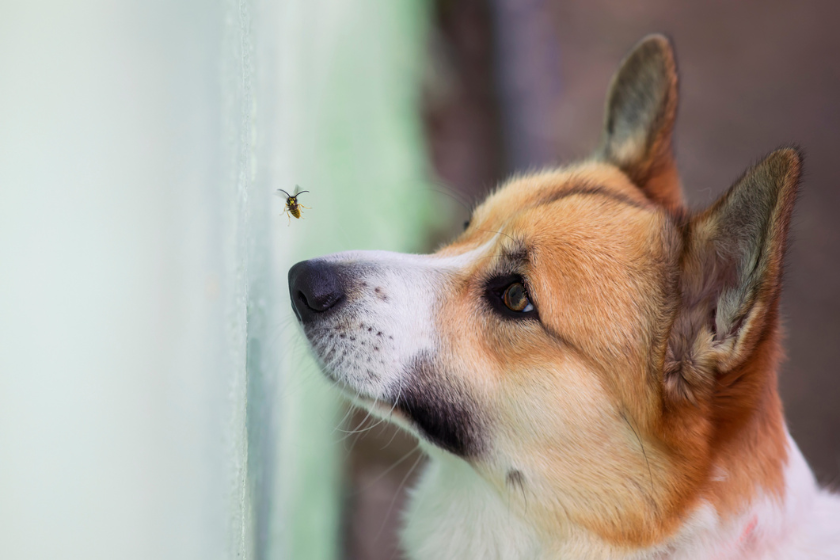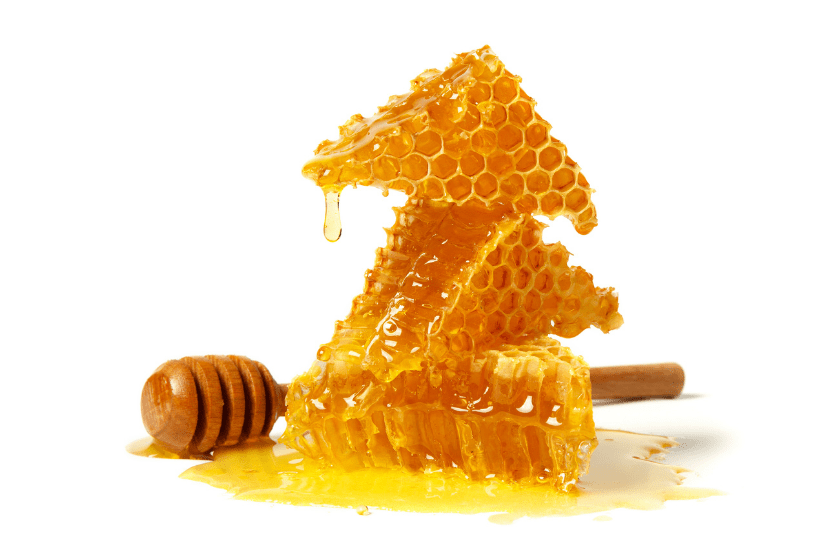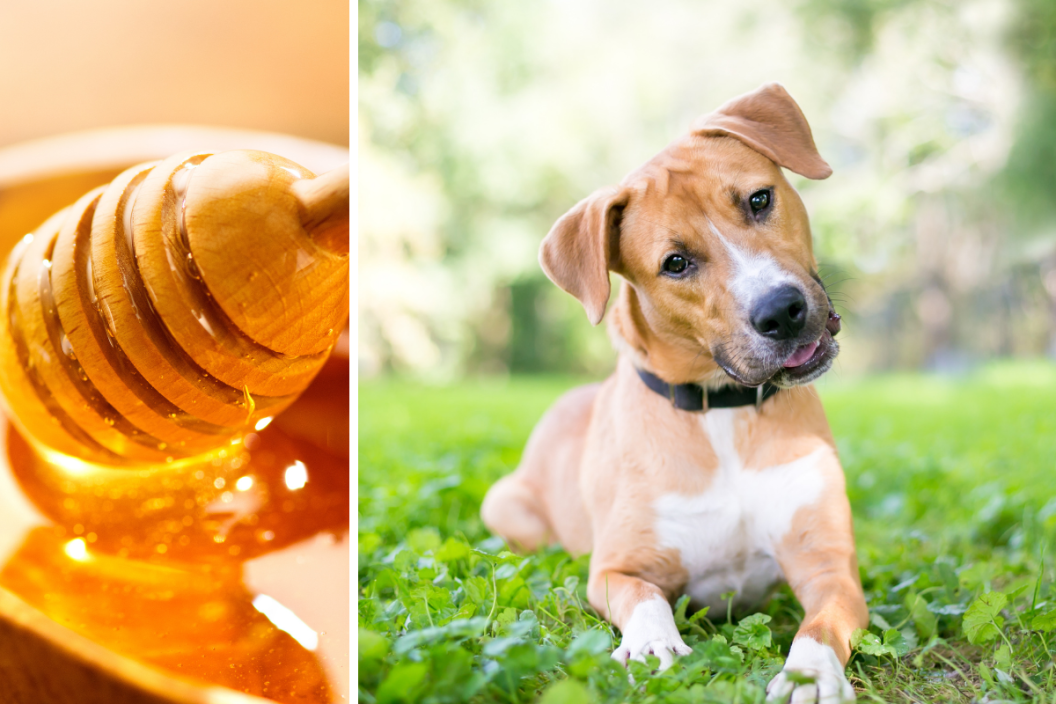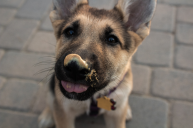Honey is easy to recognize. Golden syrup, packed away in a bear-shaped bottle, adorns the sugar and sweetener shelves at grocery stores everywhere. It's hard to find anyone who doesn't like honey, dogs included. But can dogs eat honey safely?
Honey starts as flower nectar collected by bees. This flower nectar is stored inside the honeycomb, where it breaks down into simple sugars from the process of evaporation. This natural sugar boasts a wide array of medicinal properties for humans. Honey comes packed with vitamins and minerals such as zinc, iron, manganese, calcium, potassium, and magnesium among others. Honey also contains Vitamins B, C, D, E, and K, though you'd have to eat quite a lot of honey to get these vitamins in large quantities.
Honey is frequently touted as a health supplement, particularly in its raw form. Health nuts cite its antibacterial properties, and historically, honey has been used for its anti-microbial and anti-fungal properties throughout the centuries. Many also use honey as a way to treat allergies, by buying local honey made from local flowers in the hopes that the body will get used to the pollen the natural way.
These are all wonderful benefits, but what about for dogs. Can dogs eat honey and share the benefits?
Dogs and Honey

"Honey can be an addition to your dog's diet but in small quantities," says Alex Schechter, DVM.
The key is moderation: honey in small quantities is considered generally safe for dogs to consume. A little honey might even be beneficial for your doggo, with its wealth of health benefits. There are a few caveats, however. Here's what the experts have to say about it:
"Canines should not eat more than a teaspoon of honey in a day. However, that feeding amount depends on the size, breed, and age of your dog. Large amounts of honey can cause digestive upset to your canine. Also, if your pet has obesity issues avoid offering it honey, and also the food should also never be given to puppies or adult or senior dogs with diabetes," says Schechter.
Just like in human babies, honey is off limits to puppies. Honey may contain botulism spores and should not be given to puppies or dogs with weakened immune systems, as well as diabetic or obese dogs. Botulism is a rare, but serious, condition that can cause paralysis in dogs.
Older dogs, on the other hand, have strong immune systems that are capable of handling exposure to botulism spores.
Benefits of Feeding Honey to Dogs

Just like for humans, there are a number of health benefits of honey for dogs. These include, but not limited to:
- Helping with seasonal allergies: honey is said to help reduce allergic reactions to flower pollen—assuming your allergens are the same type that's in the honey and not some other environmental allergies.
- Helping with sores and cuts: things like a minor skin wound or a hot spot on Fido can benefit from a small application of honey. Containing substances like flavonoids, honey can help heal skin, and it's also great for your dog's coat and skin.
- Helping with Kennel Cough: just like humans use honey to soothe a sore throat, honey can be used to help with inflammation and alleviate symptoms associated with respiratory infections like Kennel Cough.
- Helping with energy levels: due to the high sugar content in honey, giving a small quantity to your dog can provide a quick energy boost!
So, can dogs eat honey? As with most things, moderation is key!
Have you given your dog honey before? Let us know on the Wide Open Pets Facebook page!
This article was originally published April 18, 2021.




